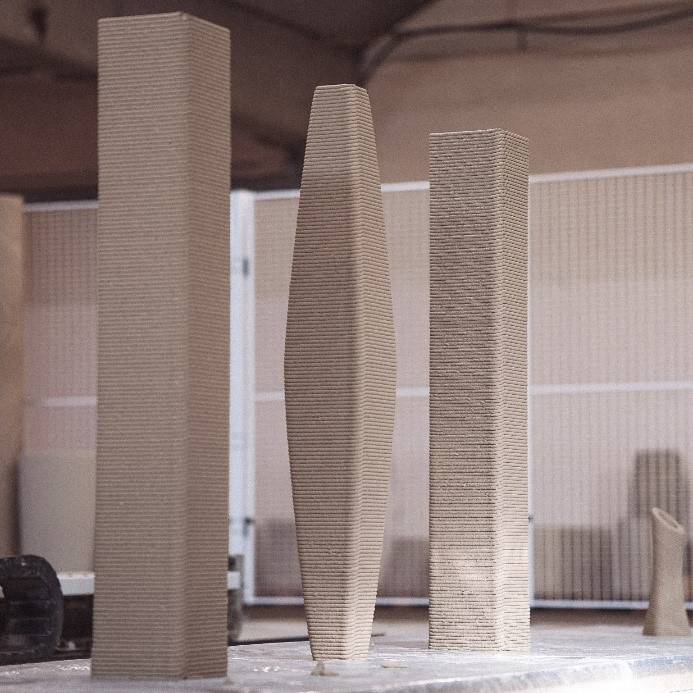
The sustainable potential of concrete cross-section optimization
Digital fabrication with concrete (DFC) allows for cross-sectional optimization beyond the scope of conventional concrete production methods (casting in a formwork). Examples include functional grading of material, or optimization of the cross-sectional shape following the internal stress distribution, with the aim of decarbonizing the construction industry.
The current graduation project will study the sustainable potential that is enabled by DFC methods. Firstly, linear structural elements (beams and columns) will be designed according to NEN-EN 1992 rules with varying levels of in-plane (normal forces) and out-of-plane (bending moments or eccentricity) loading. Based on this analysis, the utilization of the material under various conditions can be identified for traditional construction. Next, strategies for reducing the CO2 impact can be defined by selecting new, digital fabrication techniques. These methods can enable more efficient structural designs. The relation between fabrication and design will be studied and systematically evaluated. Optionally, the generated designs can be produced on a 1:1 scale and subjected to experimental testing in the Structures Laboratory for validation.
Themes
This project will include one or multiple of the following themes, to be defined in consultation with the student and finalized in your graduation plan:
- Sustainable structural concrete design
- Digital fabrication with concrete
- Parametric Eurocode design
- Experimental validation
- Numerical analysis
Supervision
Supervision takes place on a bi-weekly basis in an MSc graduation studio setting (2-3 students), combining topics focused on Digital Fabrication (with Concrete).